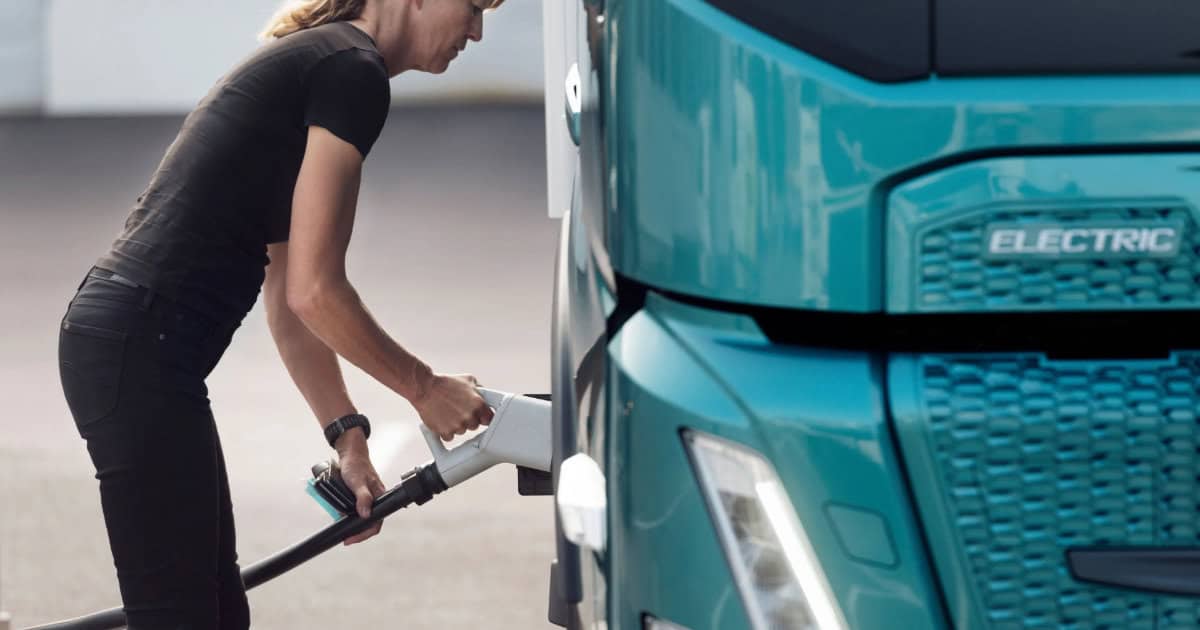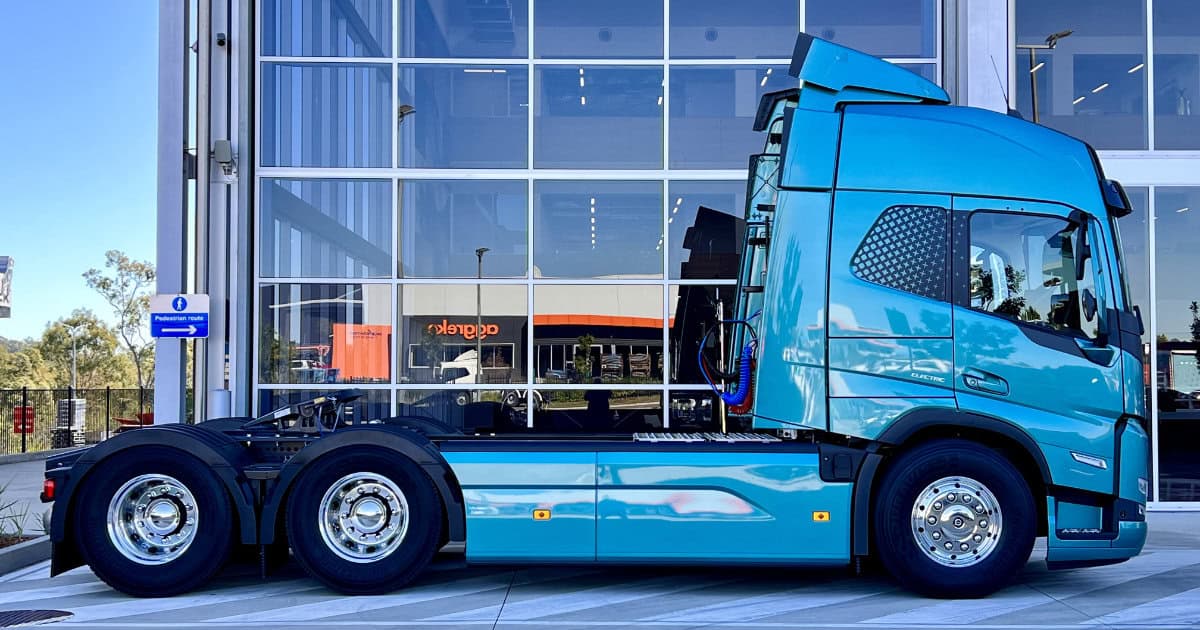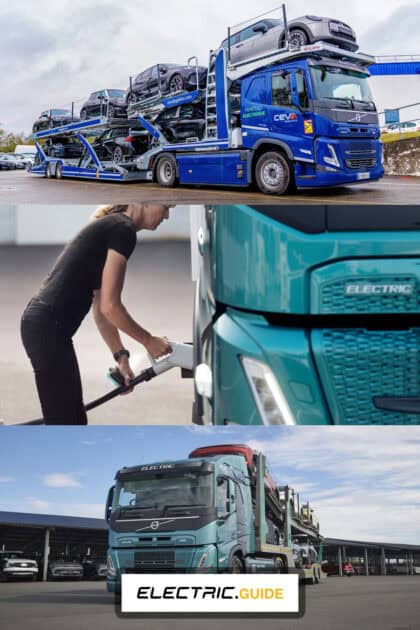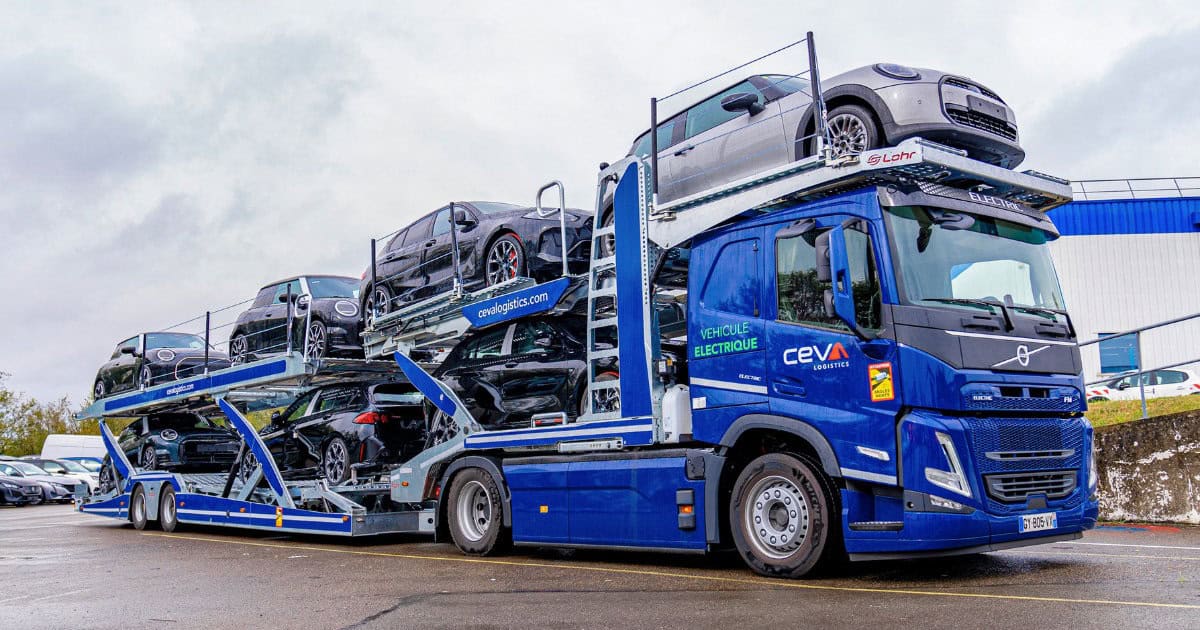In the bustling streets of Paris, a silent revolution is taking place as BMW and CEVA Logistics introduce an electric car carrier, marking a significant shift toward sustainable vehicle distribution. This isn’t a vision of the future, it’s a current reality in the heart of Île-de-France, where they are not just moving cars, but also redefining urban logistics with an eye on environmental impact.
The Initiative: A Step Towards Sustainable Logistics
In an ambitious move toward sustainability, BMW has partnered with CEVA Logistics to test the use of an all-electric car carrier for vehicle distribution in the Paris region. This pilot project, which began in September 2024, signifies a bold step in reducing the carbon footprint of automotive logistics. The electric vehicle, a Volvo FM Electric, is adapted specifically for the task of transporting BMW and MINI cars from CEVA’s platform in Marly-la-Ville to various dealerships across the urban and suburban areas of Paris.
The Electric Carrier: Specifications and Challenges

The Volvo FM Electric carrier operates on a daily route covering approximately 270 kilometers. With the trial set to conclude by the end of the first quarter of 2025, it’s expected to accumulate 30,000 kilometers. This extensive operation tests not just the vehicle’s range and efficiency but also its integration into the existing logistics network. Challenges include adapting to the urban environment’s unique demands like traffic congestion and the need for rapid turnaround times between deliveries.
Environmental Impact and Data Collection
The initiative is not merely about proving the feasibility of electric heavy vehicles in logistics, it’s also about data. Telematics systems installed in the truck provide invaluable insights into energy consumption, route efficiency, and operational viability. These data points are crucial for evaluating the environmental impact, particularly in terms of CO2 reduction, which aligns with BMW’s goal to decrease emissions by 40% by 2030 compared to 2019 levels.
Potential for Broader Adoption
If successful, this pilot program could be a blueprint for similar initiatives across Europe and beyond. The focus on urban areas, where pollution from traditional diesel vehicles is most pronounced, could lead to a significant shift in how goods, especially high-value items like cars, are transported. The project’s results will determine whether this electric carrier becomes a standard in BMW and CEVA’s fleets or remains an experimental venture.
Industry Implications

The broader industry is watching closely. If electric carriers prove viable, they could accelerate the transition from fossil fuel-based vehicles to electric alternatives in logistics, a sector that has been slow to embrace such change due to the high energy demands of heavy transport. This could also prompt other manufacturers and logistics providers to reevaluate their approaches to sustainability.
Public and Expert Opinions
Public sentiment, as seen on social platforms, reflects excitement about cleaner urban environments alongside concerns about the practicalities of electric heavy vehicles. Experts in logistics and environmental science are optimistic, pointing out the dual benefit of reduced emissions and quieter operations in densely populated areas. However, they also caution about the need for a robust charging infrastructure to support such initiatives.
The Future of Electric Logistics
The trial’s success could pave the way for more electric vehicles in logistics, particularly in last-mile delivery scenarios where noise and pollution are significant issues. It also raises questions about the scalability of electric solutions in logistics, considering the energy needs and the current limitations of battery technology.
Collaborative Efforts for a Greener Future

Both BMW and CEVA are part of larger corporate structures committed to sustainability. CEVA, under the CMA CGM Group, aims for carbon neutrality by 2050, while BMW has set aggressive targets for electric vehicle sales and material recycling. This project is a testament to their commitment, showing how partnerships can lead to practical, scalable solutions.
The Bottom Line
As we stand at the cusp of a logistics revolution, the trial in Paris might just be the beginning. For those interested in the future of mobility and sustainability, this project offers a glimpse into what could be a cleaner, greener way of moving goods. It’s not just about transporting cars, it’s about transporting us towards a more sustainable future.
Frequently Asked Questions About Electric Car Carriers
The electric car carrier significantly reduces both noise and air pollution in urban settings like Paris. By eliminating tailpipe emissions, it contributes to cleaner air quality and reduces the noise typically associated with diesel trucks, enhancing the quality of life for city residents. This aligns with broader goals to mitigate the urban heat island effect and improve public health by reducing respiratory diseases linked to vehicle exhaust.
This initiative could set a precedent for using electric vehicles in logistics not just in Europe but globally. Success here could encourage other companies to adopt electric fleets, leading to policy changes that favor electric transport, incentives for infrastructure development, and a shift in industry standards towards sustainability. It might also drive innovation in battery technology and vehicle design tailored for logistics, influencing how goods are transported worldwide.

